My Old Kentucky Home
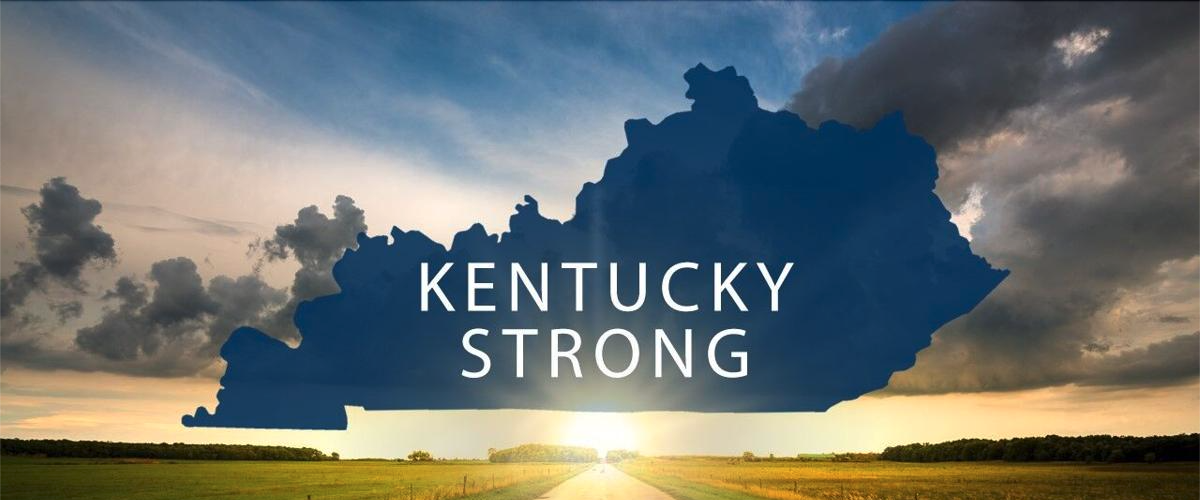
My granny used to always say that you can take a girl out of Kentucky, but you can’t take Kentucky out of a girl. How right she was. I may have moved to Dallas five years ago to join IAVM, but Bowling Green, KY will always be home. Forty-one of my 46 earthly years were spent there, and it branded its southern heart into my own. When I refer to “home,” that will forever be my point of reference.
Throughout my tenure with IAVM, my heart has bled when we receive reports of tragedies that have hit our member venues and their communities. Seeing the devastation left behind by earthquakes, hurricanes, wildfires, and even at the hands of humans in mass casualty events, never gets easier. There is something especially hard about it, though, when it hits home. Overnight on Friday, December 10, it hit my “home.”
Saturday, December 11, I woke to hundreds of missed calls and messages. There is nothing more frightening to see in our line of business. Immediate panic and worry set in before taking a breath, then opening those missed messages to see what needed to be done. My heart sank at the texts and images I had missed. My home state, my old Kentucky home, had been devastated by the most catastrophic tornadic event to ever hit there. Entire towns leveled, in some instances nothing left but foundations where centuries old buildings once stood, and untold lives lost. By now you have seen the images and read the reports.
It took minutes, that seemed like years, to connect with my sister and find out about the fate of my family and friends. We were blessed that everyone was safe and accounted for. Not everyone, even just a street over, was so lucky. As the hours passed, and I received more and more reports, the devastation and loss of lives became even more grim. Today, property loss is well within the billions, many are still without power and cell service, and 74 are confirmed dead; 12 are children. Their ages range from 2 months to 98 years old. Seven lost were from a single family. Every piece of my heart goes out to those who lost someone. Prayers for the searchers still looking for those not yet recovered.
One thing about Kentuckians, we have never met a stranger. When you see neighbors helping neighbors, strangers helping strangers, to dig through rubble or cook meals, it’s because that person is family. That person is a fellow Kentuckian. That is why Kentucky will forever have my heart, because it is my family. Every soul there is. So, as I prepare to drive back “home” for the holidays, to help where and how I can, I think of the old saying that “you can’t go home again.” The meaning behind the words in this case is poignant. I am returning to a place I see in my memory, and that place no longer exists as I see it. While what I am returning to won’t look like home in its landscape now, the people I will see along the way will still be the same hard working, generous hearts, and they are what truly make Kentucky home. They are what I am returning to.
I will be documenting my journey through many of the states affected here and on our Facebook page starting December 23, so please be sure to check back.
Welcome to Our Newest Members
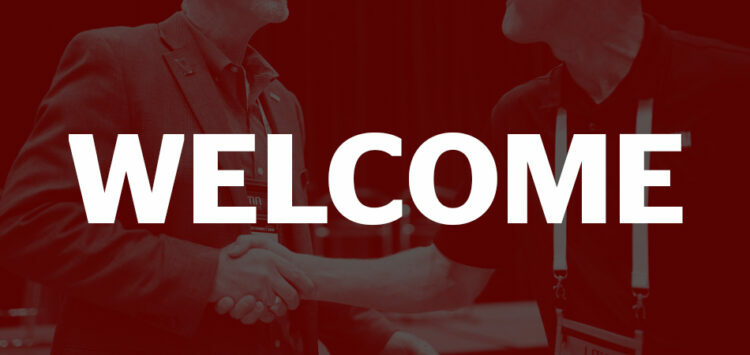
Please welcome our newest members who joined IAVM in November 2021. Thank you for being a part of the association! Also, let us get to know you better by participating in the I Am Venue Management series. Please visit http://www.iavm.org/i-am-venue-management-share-your-story to share your story and photo.
Javier Aguirre, Utah Valley Convention Center, Provo, UT
Bryan Arnecke, Trail Drive Management Corp./Dickies Arena, Fort Worth, TX
Yvette Audet, Sports & Recreation Management Services, Lindfield, NSW, Australia
Cameron Basila, Nationals Park – Washington Nationals, Washington, DC
Allison Black, Henderson Engineers, Lenexa, KS
Megan Brooke, Trail Drive Management Corp./Dickies Arena, Fort Worth, TX
Creighton Buhr, T-Mobile Center, Kansas City, MO
Andrea Bushman, Resch Center, Green Bay, WI
Waykme Butler, Madison Square Garden Entertainment, New York, NY
Dennis Carew, Walter E Washington Convention Center, Washington, DC
Adrienne Cleverley, Nationals Park – Washington Nationals, Washington, DC
Kristin Coffman, Walton Arts Center/Walmart AMP, Fayetteville, AR
Adam Cudal, Keystone Centre, Brandon, MB, Canada
Camila de Franca Morais, Exhibition Place, Toronto, ON, Canada
Giselle Diaz, Nationals Park – Washington Nationals, Washington, DC
Brian Doll, T-Mobile Center, Kansas City, MO
Meagan Drabik, Grand Wayne Center, Fort Wayne, IN
Scott Dunlap, Trail Drive Management Corp./Dickies Arena, Fort Worth, TX
Morgan Earley, Rice-Eccles Stadium/Jon M. Huntsman Center, Salt Lake City, UT
Samantha Faley, T-Mobile Center, Kansas City, MO
Scott Fear, Nationals Park – Washington Nationals, Washington, DC
Elliott Fodera, Nationals Park – Washington Nationals, Washington, DC
Kali Fujanami, Nationals Park – Washington Nationals, Washington, DC
Josh Gann, Owensboro Convention Center, Owensboro, KY
Tony Gomez de la Casa, Trail Drive Management Corp./Dickies Arena, Fort Worth, TX
Kathy Grabowsky, Lethbridge & District Exhibition, Lethbridge, AB, Canada
Joshua Greene, Stephen C. O’Connell Center, Gainesville, FL
Elizabeth Guptill, Berklee College of Music, Boston, MA
Zack Gutierrez, Rice-Eccles Stadium/Jon M. Huntsman Center, Salt Lake City, UT
Rena Hamilton, Owensboro Convention Center, Owensboro, KY
Anita Harrington, Bendigo Stadium Ltd, Bendigo, VIC, Australia
Logan Hehn, San Francisco War Memorial & Performing Arts Center, San Francisco, CA
Vassie Hollamon, Nationals Park – Washington Nationals, Washington, DC
Eugene Holmes, T-Mobile Center, Kansas City, MO
Drew Hurley, Nationals Park – Washington Nationals, Washington, DC
Stefen Huskinson, Utah Valley Convention Center, Provo, UT
Misty Hysolli, Utah Valley Convention Center, Provo, UT
Mattison Jameson, Columbia County Performing Arts Center, Evans, GA
Jerry Jeffries, Owensboro Convention Center, Owensboro, KY
Kurtis Kaskiw, Lethbridge & District Exhibition, Lethbridge, AB, Canada
Vinnie Khurana, VenuePro, London,
James Liberti, Trail Drive Management Corp./Dickies Arena, Fort Worth, TX
Dave Little, Lethbridge & District Exhibition, Lethbridge, AB, Canada
Bernie Malone, Trail Drive Management Corp./Dickies Arena, Fort Worth, TX
Abe Markin, T-Mobile Center, Kansas City, MO
Meghan McCarron, Rice-Eccles Stadium/Jon M. Huntsman Center, Salt Lake City, UT
Nicole Mcnamara, Bendigo Stadium Ltd, Bendigo, VIC, Australia
Gregory Monahan, Nationals Park – Washington Nationals, Washington, DC
Michelle Moore, T-Mobile Center, Kansas City, MO
Walter Moore, T-Mobile Center, Kansas City, MO
Christina Mowe, T-Mobile Center, Kansas City, MO
Jacob Nichols, Chaparral Center – Midland College, Midland, TX
Jillian Pekoske, Nationals Park – Washington Nationals, Washington, DC
Malori Rhones, Walter E Washington Convention Center, Washington, DC
Kirk Roberts, Trail Drive Management Corp./Dickies Arena, Fort Worth, TX
Amanda Sanchez, University of Southern California, Thornton School of Music, Los Angeles, CA
Ruben Sanchez, UTA Special Event Facilities, Arlington, TX
Andy Schmidt, Trail Drive Management Corp./Dickies Arena, Fort Worth, TX
Kelly Schmidt, Gogue Performing Arts Center, Auburn, AL
Valerie Skarda, Utah Valley Convention Center, Provo, UT
Wesley Smith, Nationals Park – Washington Nationals, Washington, DC
Allison Sotelo, SAP Center at San Jose, San Jose, CA
Juan Torres, Prism.fm, Austin, TX
Kerri Troyer, T-Mobile Center, Kansas City, MO
Matt Warwick, Trail Drive Management Corp./Dickies Arena, Fort Worth, TX
Brittany Washington, Raleigh Convention and Performing Arts Complex, Raleigh, NC
Michael Watts, AALRR, Cerritos, CA
Jacob Whitfill, Owensboro Convention Center, Owensboro, KY
Elisa Wong Shuk-fan, Hong Kong Coliseum & Queen Elizabeth Stadium, Hong Kong, China
John Yagos, Lethbridge & District Exhibition, Lethbridge, AB, Canada
iCommit 2021 Winners Announced
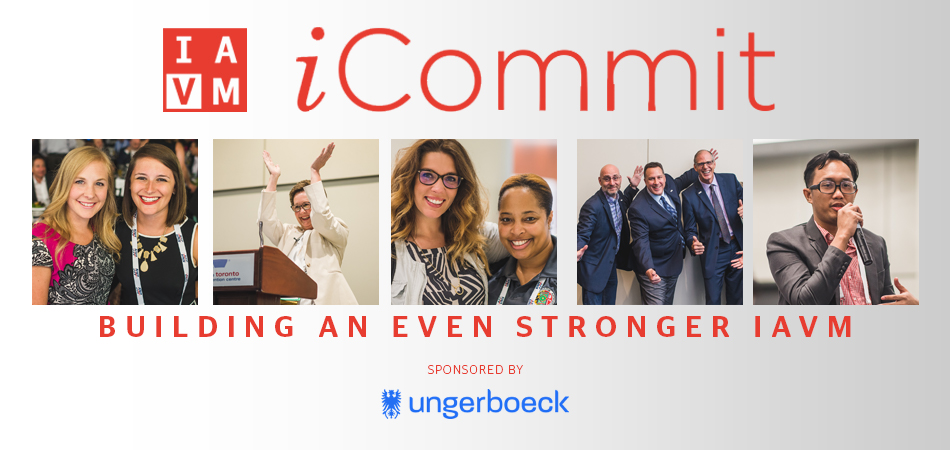
iCommit, IAVM’s annual member referral campaign, ran this year from July 1 through October 31, 2021. The goal of the campaign is for each existing member to recruit one or more individuals to join our community of venue professionals. The results are in!
We are pleased to report that 90 members have been entered into the raffle to win prizes for every new member they have recommended. Together with their support, we have added 196 additional members to IAVM!
- Grand Prize Winner – VenueConnect 2022 free registration goes to: Michelle Frank, The Lerner Theatre in Elkhart, IN
- Raffle Winners – Five, $500 Apple Gift Cards*
- Adina Erwin, CVE – Barclays Center – Brooklyn, NY
- Keith Van Der Leest – Inter Miami CF – Fort Lauderdale, FL
- Kass Prince – Irving Arts Center – Irving, TX
- Kim Gillard – Credit Union of Texas Event Center – Allen, TX
- Blake Malcom – Wells Fargo Center – Philadelphia, PA
- Region Winner – Region 5 added the largest number of new members, with a total of 60 during this period.
The Region Director will select one recipient to have his/her CVP application fee waived (value $125). The candidate must apply by July 2022.
Thank you to the members who constantly answer the call to help us grow and continue to be the largest association serving the venue management industry.
We are particularly grateful and offer special thanks to Ungerboeck for their continued support of this membership initiative.
If you have any questions, contact IAVM’s Director of Membership, Gina Brydson.
Juan Gabriel Tamez, CVE, CEM, Presented Distinguished Service Award at IAEE Expo! Expo!
By R.V. Baugus
IAVM sends it congratulations to Juan Gabriel Tamez, CVE, CEM, Managing Director, Expo Guadalajara, for being named the recipient of the Distinguished Service Award at IAEE’s Expo! Expo! recently held in Philadelphia.
The International Association of Exhibitions and Event’s® (IAEE) Awards recognize outstanding 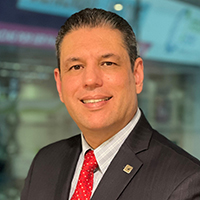 contributions by IAEE members to the organization and to the exhibitions and events industry. Recipients were selected after careful consideration and review by the IAEE Awards Committee and approval by the IAEE Board of Directors following an open call for nominations by IAEE members earlier in the year.
contributions by IAEE members to the organization and to the exhibitions and events industry. Recipients were selected after careful consideration and review by the IAEE Awards Committee and approval by the IAEE Board of Directors following an open call for nominations by IAEE members earlier in the year.
“It is a great pleasure to bestow these honors on our very deserving colleagues,” said 2021 IAEE Awards Committee Chairperson Kellie Shevlin, CEM. “These awards acknowledge the outstanding contributions IAEE members make to the advancement of the exhibitions and events industry.”
The Distinguished Service Award is presented to an IAEE member in recognition of an individual who has rendered distinguished service to IAEE and to the exhibitions and events industry. Qualifying criteria includes extraordinary service and contributions at both the local and national levels that have furthered the growth and development of this organization. When representing IAEE, the honoree will have served as a role model for the industry.
As we all know, Juan Gabriel Tamez serves as a role model for several industries, IAVM included. Congratulations!
Huntington Place Announced as New Name for Detroit’s World-Class Convention Center
By Mary Klida
Karen Totaro, CVE, general manager for ASM Global, announced Huntington Place as the new name for Detroit’s world-class convention center. The new name signifies an important moment in the transformation of Detroit’s gathering place for conventions, meetings and special events, and is the 16th largest convention center in the country.
ASM Global has been managing the day-to-day operations for Detroit’s convention center since 2010, establishing the venue as a top convention center both nationally and internationally. The ASM team rebuilt the business model, resulting in a $20 million reduction of operating deficit, and quadrupled the number of major events held annually in the center from 2010 to 2019. The ASM team completed a transformation of the customer experience to one that is focused on creating lasting memories for every visitor to Detroit.
“Our partnership with Huntington Bank brings a wealth of opportunities to our community and visitors,” Totaro said. “As we continue to elevate this Detroit convention center as an industry gold standard, the creative, hardworking team at Huntington Place continues to make diversity a strength as it focuses entirely on the success of every event.”
Huntington merged with TCF Financial Corp. in June of 2021, creating a top 10 regional bank. This 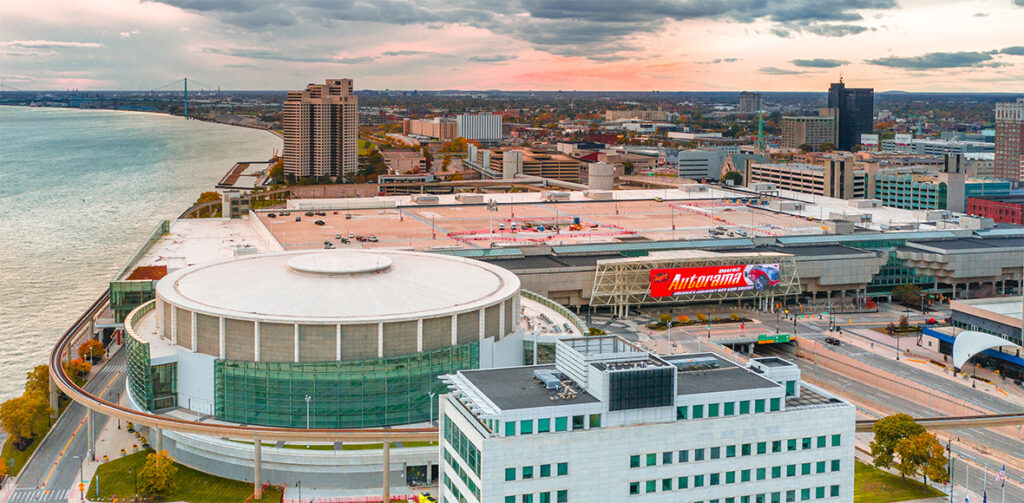 strengthens Huntington Place’s position in offering customers access to thought leaders in Fortune 100 companies, representative of major corporations and leaders in their industries for keynotes and education segments. The center also offers access to Michigan nonprofits to bring CSR initiatives to life during events, and community service resources such as fitness mini-events and job fairs.
strengthens Huntington Place’s position in offering customers access to thought leaders in Fortune 100 companies, representative of major corporations and leaders in their industries for keynotes and education segments. The center also offers access to Michigan nonprofits to bring CSR initiatives to life during events, and community service resources such as fitness mini-events and job fairs.
During the COVID-19 pandemic, the convention center now known as Huntington Place became a civic center for the Detroit region, serving as a field hospital, a day center for homeless services, a food distribution center for Food Rescue US, and the city’s largest vaccination site with a drive through facility in the Atwater Garage. The venue reopened with a strong event schedule, discovering that show managers want to partner with an organization that values the community they serve.
“We are proud that following the TCF-Huntington merger, the name of our new combined bank now graces the walls of this civic center that means so much to the people of Detroit and all of southeast Michigan. From high school graduations to the North American International Auto Show, from speeches by sitting presidents to the annual NAACP Fight for Freedom Fund Dinner, this venerable facility is part of the fabric of our community and Huntington is fortunate to now be a part of it,” said Gary Torgow, chairman, Huntington Bank.
Detroit’s Huntington Place completed its $279 million transformation in 2015, enhancing its view of one of the world’s busiest waterways, the Detroit River, with a view of an international destination on the other side of its banks – Windsor, Ontario, Canada.
The venue has hosted some of the most important meetings and conventions in the country, ranking it among the top 20 in the nation. In 2022 the venue looks forward to hosting several big trade shows such as Connect Marketplace and the Silicone Expo, the world’s first free-to-attend commercial trade show and conference for the silicone industry.
“Our naming rights agreement, which was a priority for the Detroit Regional Convention Facility Authority, began with TCF Bank and continues with Huntington Bank in strengthening the Center’s financial future. We are dedicated not only to being a contributor to our region’s economic vitality, but also to creating jobs and enhancing the attraction of our destination to visitors,” said Lisa Canada, chair of the DRCFA. “Both of our organizations have a deep commitment to the communities we serve.”
Against the backdrop of an international riverfront, Huntington Place projects continued future growth for world-class meetings, conventions and event business in 2022. Prior to 2020, Huntington Place attracted nearly 1.5 million visitors annually.
Just one week after the merger, Huntington unveiled a $40 billion Strategic Community Plan to improve financial opportunities for the customers, businesses, and communities it serves, with a focus on affordable housing, small business and increased capital to historically disadvantaged and low-to-moderate income communities.
Mary Klida is Senior Marketing & Communications Manager.
Do you want to receive a Front Row News weekly digest?
Categories
- Allied (856)
- Architecture (147)
- Arenas (744)
- Career (890)
- Convention Centers (889)
- Education (608)
- Events (1,528)
- Food & Beverage (193)
- Foundation (113)
- Guest Experience (1,482)
- Industry News (2,253)
- Leadership (1,872)
- Marketing (150)
- Membership (1,985)
- Music (212)
- Performing Arts Centers (453)
- Professional Development (398)
- Research (127)
- Safety & Security (425)
- Sports (763)
- Stadiums (607)
- Student (159)
- Technology (515)
- Ticketing (92)
- Touring (82)
- Trends (357)
- Uncategorized (771)
- Universities (216)
- Video (25)
- Young Professional (198)
Twitter Feed
- Twitter feed loading
Recent Posts
- GEODIS Park Selects Allied Universal As Its Preferred Event Services Provider
- Venuworks Appoints Marc Solis as Executive Director of the Fresno Convention and Entertainment Center
- Los Angeles Convention Center Diverts 8,000 Pounds of Wood Waste to Local Foundation Supporting Fire Victims
- Fort Worth Unveils Plans for Phase 2 of Convention Center Transformation
- San Diego Convention Center CEO Announces Retirement After a Decade of Leadership
Categories
- Allied
- Architecture
- Arenas
- Career
- Convention Centers
- Education
- Events
- Food & Beverage
- Foundation
- Guest Experience
- Industry News
- Leadership
- Marketing
- Membership
- Music
- Performing Arts Centers
- Professional Development
- Research
- Safety & Security
- Sports
- Stadiums
- Student
- Technology
- Ticketing
- Touring
- Trends
- Uncategorized
- Universities
- Video
- Young Professional
Archives
- February 2026
- January 2026
- December 2025
- November 2025
- October 2025
- September 2025
- August 2025
- July 2025
- June 2025
- May 2025
- April 2025
- March 2025
- February 2025
- January 2025
- December 2024
- November 2024
- October 2024
- September 2024
- August 2024
- July 2024
- June 2024
- May 2024
- April 2024
- March 2024
- February 2024
- January 2024
- December 2023
- November 2023
- October 2023
- September 2023
- August 2023
- July 2023
- June 2023
- May 2023
- April 2023
- March 2023
- February 2023
- January 2023
- December 2022
- November 2022
- October 2022
- September 2022
- August 2022
- July 2022
- June 2022
- May 2022
- April 2022
- March 2022
- February 2022
- January 2022
- December 2021
- November 2021
- October 2021
- September 2021
- August 2021
- July 2021
- June 2021
- May 2021
- April 2021
- March 2021
- February 2021
- January 2021
- December 2020
- November 2020
- October 2020
- September 2020
- August 2020
- July 2020
- June 2020
- May 2020
- April 2020
- March 2020
- February 2020
- January 2020
- December 2019
- November 2019
- October 2019
- September 2019
- August 2019
- July 2019
- June 2019
- May 2019
- April 2019
- March 2019
- February 2019
- January 2019
- December 2018
- November 2018
- October 2018
- September 2018
- August 2018
- July 2018
- June 2018
- May 2018
- April 2018
- March 2018
- February 2018
- January 2018
- December 2017
- November 2017
- October 2017
- September 2017
- August 2017
- July 2017
- June 2017
- May 2017
- April 2017
- March 2017
- February 2017
- January 2017
- December 2016
- November 2016
- October 2016
- September 2016
- August 2016
- July 2016
- June 2016
- May 2016
- April 2016
- March 2016
- February 2016
- January 2016
- December 2015
- November 2015
- October 2015
- September 2015
- August 2015
- July 2015
- June 2015
- May 2015
- April 2015
- March 2015
- February 2015
- January 2015
- December 2014
- November 2014
- October 2014
- September 2014
- August 2014
- July 2014
- June 2014
- May 2014
- April 2014
- March 2014
- February 2014
- January 2014
- December 2013
- November 2013
- October 2013
- September 2013
- August 2013
- July 2013
- June 2013
- May 2013
- April 2013
- March 2013
- February 2013
- January 2013
- May 2012
- March 2012
- December 2011
- November 2011
- October 2011
Recent Comments
- Frank Bradshaw, Ph.D., CVE on John Meyer, CVE, a Tireless Advocate of Certification for Venue Professionals, Has Died
- Neil Sulkes on Hilary Hartung, Friend to Many in Venue Marketing, Has Left Us
- Jason Parker, CVE on The Devastation of Hurricane Helene and How We Can Support One Another
- Larry Perkins on Touhey Testifies Against Speculative Ticketing Before Congressional Subcommittee
- Peter Secord on Major Players for Planned Elkhart Amphitheater Were in the Mix at VenueConnect
